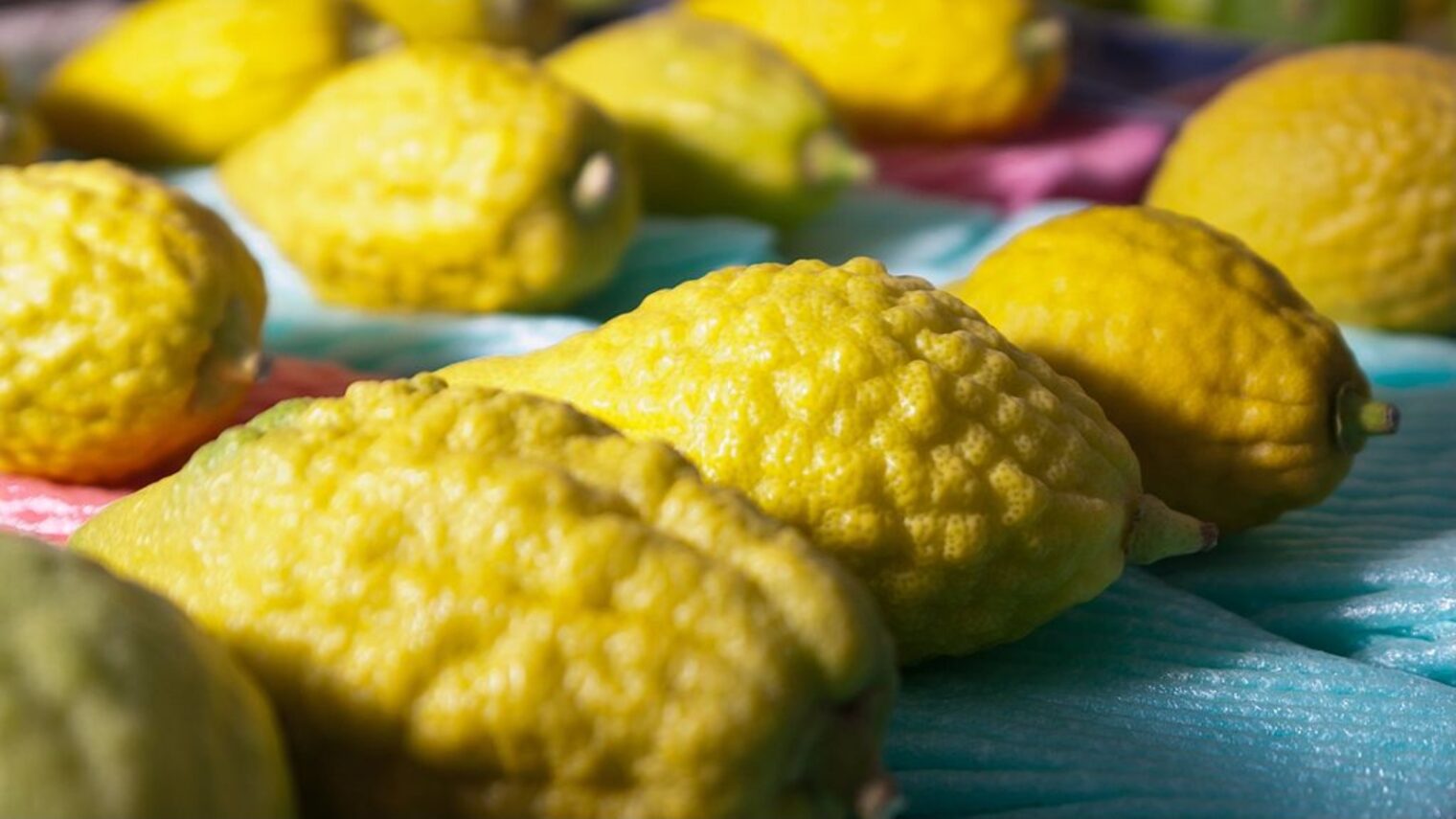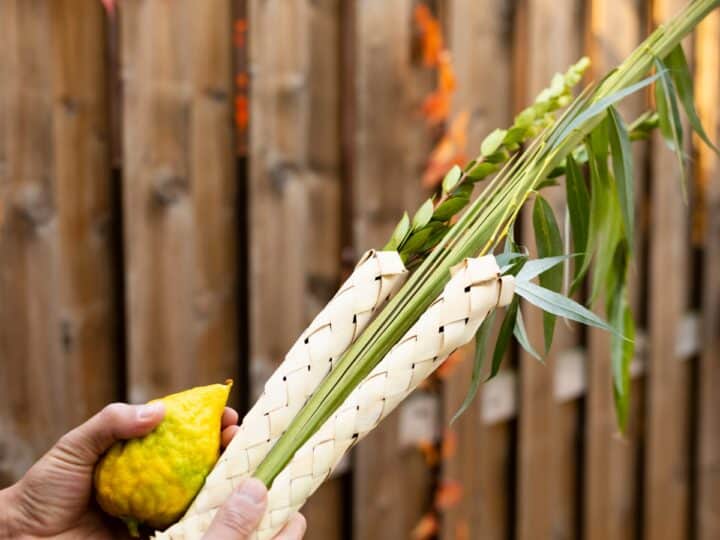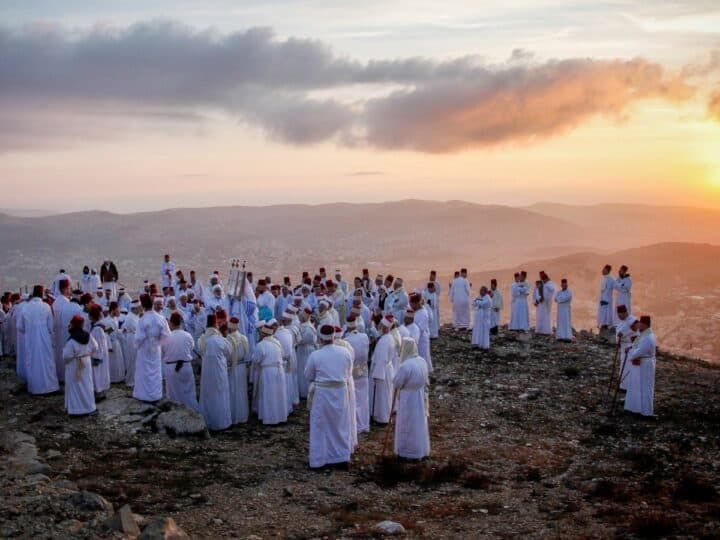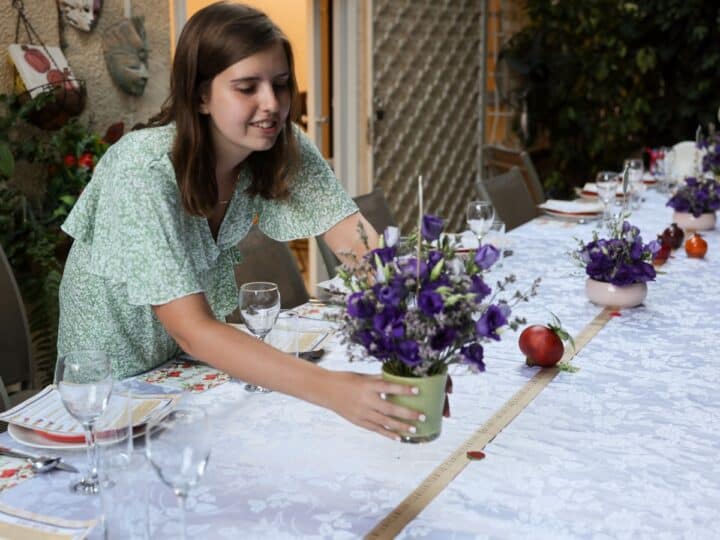The citron (etrog in Hebrew) is involved in some mysterious stuff.
There are those who believe it was this bumpy citrus fruit that got Adam and Eve expelled from the Garden of Eden.
And there are those who believe it’s among the secret ingredients in Tubi 60, the popular Israeli hard liquor claimed to cause no hangovers.
One thing is for sure: The etrog is one of the four species – along with palm, willow and myrtle — taken in hand and waved as part of the rituals of the week-long harvest holiday of Sukkot (October 10-16 this year).
Israelis buy about 2 million citrons before Sukkot, and after the holiday many people tuck them into the sock drawer as natural sachets. Others make marmalade or candied etrog peels.
Which still leaves a whole lot of excess etrogim (that’s the plural of etrog) grown on about 10 Israeli farms.
Since the etrog is not the sort of fruit you’d eat out of hand or throw in a fruit salad – it’s very dry with a very thick peel – some enterprising individuals use the surplus as a base for alcoholic beverages.
Morad Winery in Yokne’am Illit makes etrog liqueur (as well as orange, cherry, melon, passionfruit, grapefruit, apple, almond, pomegranate, lychee and pineapple liqueurs) and Tel Aviv brewery The Dancing Camel makes a seasonal Belgian-style wheat beer called ’Trog wit flavored with “heaps of etrogim.”
Etrogcello
Meir Ary, a 41-year-old agriculture researcher who moved to Israel from Costa Rica in 2015, started a business making an artisanal alcoholic beverage he calls Etrogcello.
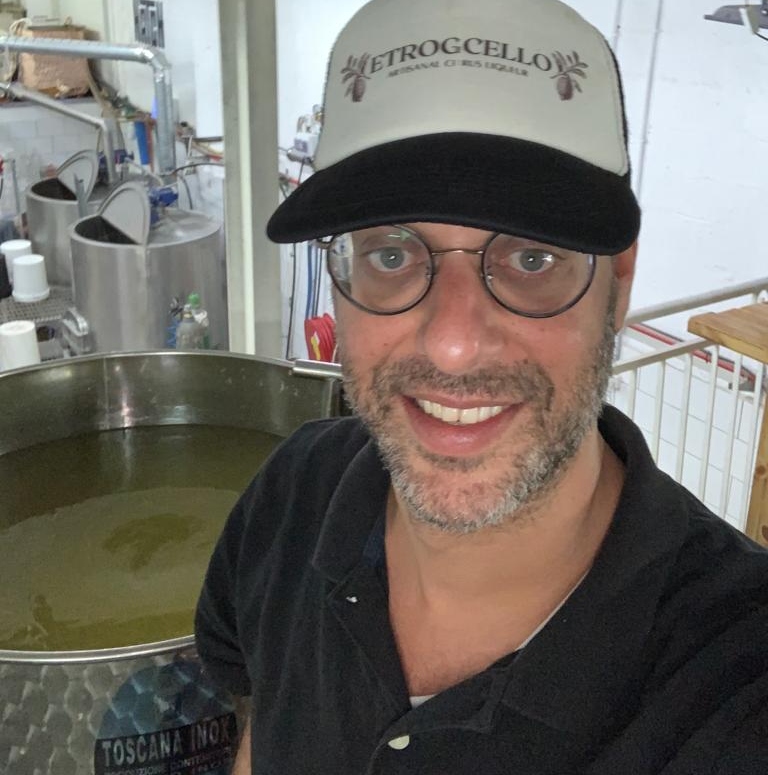
Concocted from Israeli-grown etrog peels and juice, with only water, sugar and alcohol added, Etrogcello is an all-natural Israeli take on Italian limoncello.
The exact recipe for the intense yellow-green liqueur was developed after many hours of trial and error with recipes he found online (here’s one that uses three citrons, vodka and sugar).
“I made different batches and had people taste them,” Ary tells ISRAEL21c.
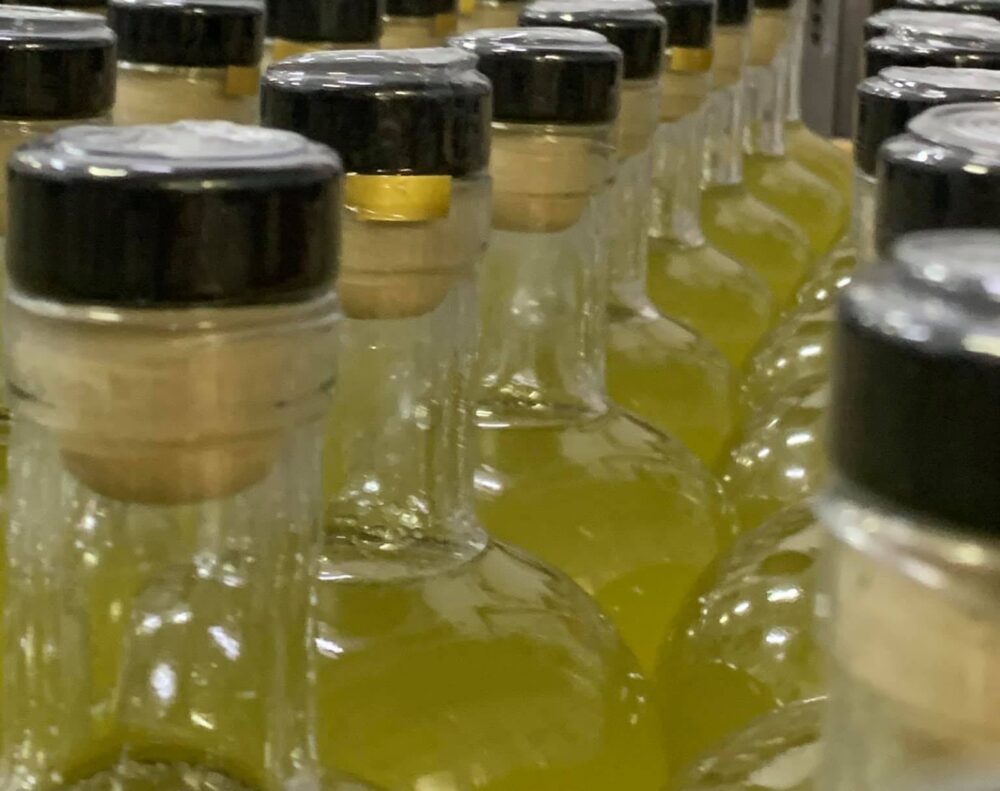
With funds from his own pocket and a Headstart campaign in 2018, he produced 450 bottles of Etrogcello in a small Jerusalem facility.
The year before last, his production run grew to 1,800 bottles, which were sold in Israel online and at market stands such as Sarona in Tel Aviv.
View this post on Instagram
Ary didn’t make Etrogcello this year because it is a sabbatical year for Israeli agriculture.
He spent the time off visiting his family back in Costa Rica, where his maternal great-grandfather was the chief rabbi, and scouting out locations in Israel to open a larger Etrogcello factory. He’s also searching for a domestic source of organic etrogim.
Ary considers the etrog a “soulful fruit” with many spiritual qualities.
He uses seven etrogim per 750 ml bottle — seven represents completion and perfection in Judaism. The liqueur distills for 40 days, the same number of days Moses was on Mount Sinai receiving the tablets of the law. Etrogcello has 26 percent alcohol, and 26 is the numerical equivalent of the Hebrew letters of God’s name.
Moreover, says Ary, the etrog in Jewish thought represents the heart, and “Etrogcello brings this unique flavor into the hearts of everyone.”
Want to learn more about the etrog? Click here to read 10 fun facts.




